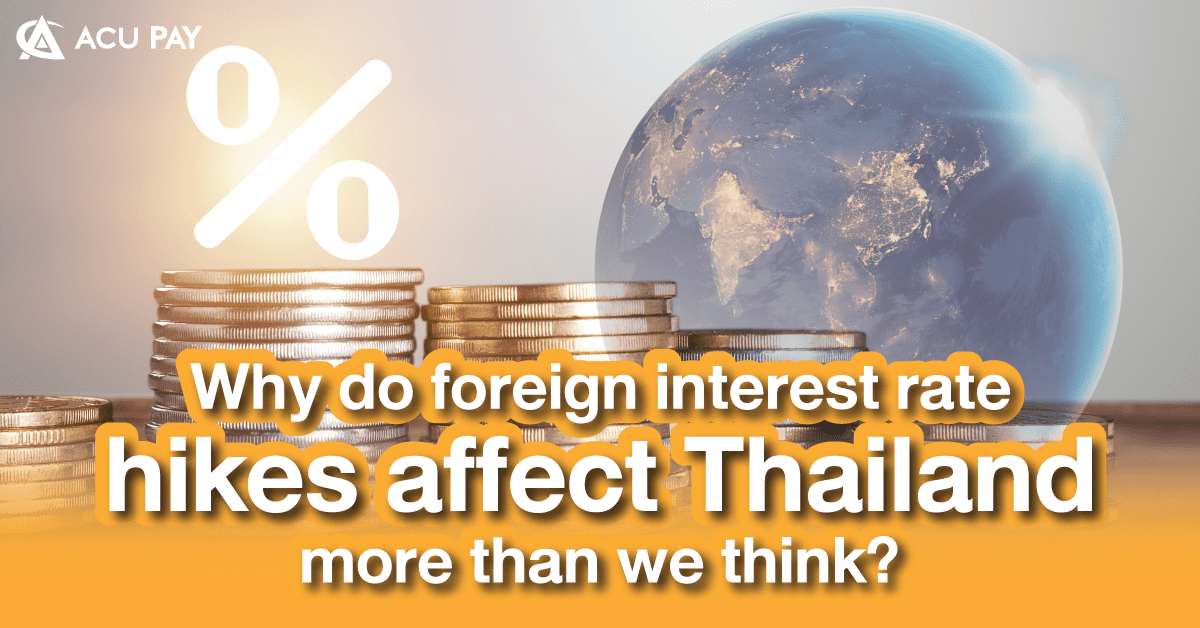
The rise and fall of interest rates are a policy that many countries use to control and stabilize their finances in order not to have a broad impact. But it also affects foreign countries. How is it affected? Let’s see.

An interest rate policy is the interest rate that a country’s central bank will determine for commercial banks in the country to implement a predetermined interest policy. This will directly affect the deposit and loan policies of commercial banks. and affect the expenditure, investment, and savings of people in the country. In the end, it will affect the overall economy of the country.
The answer is that interest rate policy determines bond yields. And this bond yield directly affects the fluctuation of the currency of that country. It also affects the appreciation or depreciation of each currency when we exchange.
The principle of rising and falling interest rates, as mentioned above, the interest rate policy is used to control and stabilize the economy’s finances. Therefore, the rise and fall of interest will depend on the need to increase or decrease the money supply of that economy through bond trading.
The question is, what are bonds? Bonds are financial instruments that are the same type of asset as debt and that give returns with interest. And interest will be determined by the interest rate policy itself. Let’s imagine that we are a creditor to a debtor who borrows money at a higher interest rate. The debtor here is the person who sells the bond. Most of them are governments or banks.
When we lend money, the amount of money in our hands decreases with the amount of time we lend. and returned with interest.
If we look at the big picture, whether a country has a high bond yield or a high interest rate, this makes the country very attractive for investment. This will cause foreign money to flow into the country enormously and make the country’s currency appreciate.
For example,
The Federal Executive Boards (FEBs) raised interest rates, boosting yields on US bonds. This makes the USD currency more attractive to investors. As a result, foreign money flows into the investment, which ultimately makes the USD appreciate.
As we all know, USD is the currency accepted by all countries as a medium of exchange. when the US is raising interest rates and making the USD appreciate, which directly affects the currency of our country. Therefore, when the baht depreciates, it makes importing goods more expensive or if buying the same products from abroad, they need more money.
For example, Thailand’s import of fuel in January 2022 averaged 1,015,944 barrels/day, with an import value of 7,468 million baht per month. at a rate of 33.2 baht/USD on an average exchange rate. If, in the following month, we imported the same oil but the currency depreciated, it changed to 34.2 baht/US dollar. As a result, we have to import oil for 7,468 million baht per month, increasing to 7,692.93 million baht per month.
Therefore, it will directly affect the price of gas at the gas station. This makes refueling much more expensive and requires us to spend more money on refueling. This directly affects higher daily expenses. Our savings and investments are greatly reduced. It does not include business sectors that increase costs as well, resulting in higher costs of goods and services. And in the end, we as consumers will have to buy products or services at higher prices as well.
What do you guys think about how to deal with rising interest rates abroad?